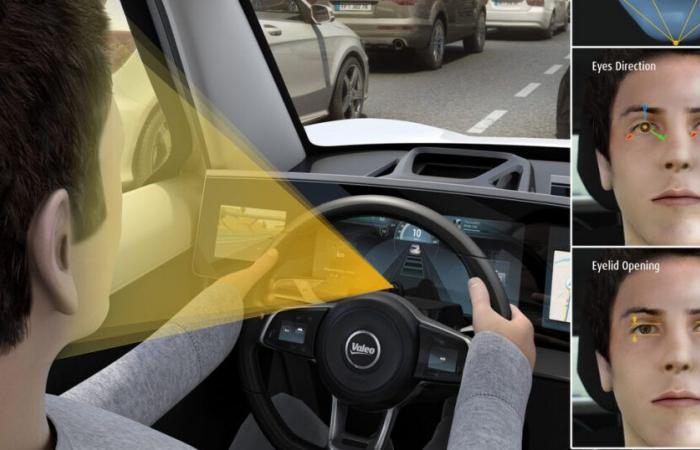The recent announcement of the use of artificial intelligence to improve the capabilities of the latest generation radars to “capture” more and more offenses caused the Drivers' Defense League, an association representing nearly a million drivers, to react. motorists in France. The LDC has just published a study on possible abuses linked to technologies (location, camera, etc.) called “All fliqués”.
Through several chapters, the association reviews the dangers of the connected car by pointing out the data collected by cameras and various sensors. Citing a study by the consulting firm KPMG, the LDC explains that by interrogating the Can bus (a system which allows several electronic control units of vehicles to communicate), it is possible to know everything that is happening: the location, the remaining fuel level, whether or not the doors are locked, the distance traveled, etc. The list of possibilities is almost endless. There are 10.7 million connected cars currently on the road in France (228 million worldwide).
Your data is worth gold
“Our investigation revealed numerous excesses, such as unjustified data collection by automobile manufacturers, the resale of this data to third party companies without the vehicle owner being informedor even the lack of respect for private life. » The LDC cites in particular Tesla, the General Motors group in the United States, Nissan but also the Koreans Hyundai and Kia singled out by the Mozilla foundation for their weaknesses in the protection of personal data.
It is for this reason that the LDC warns motorists when signing the purchase contract for a new car in which the manufacturer requests authorization for the processing of its data in accordance with the GDPR regulations (to better regulate data processing), in application since 2018. “You have therefore given your consent for your personal “data” to be used,” explains the LDC.
Still according to this report, some industry experts believe that vehicle data is already more profitable than the car itself. The European Data Act (in French, “Data Regulation”), which entered into force at the end of January 2024, ratifies the possibility for users of connected devices “to access the data that they have helped to create”.
Manufacturers, the only ones to have direct access to your information, are now required to open their servers to other companies, against “reasonable compensation”. while having the obligation to respect your private data because the Data Act focuses on non-personal data, and the GDPR concerns personal data.






